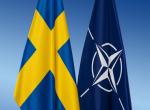When the street rose against the entrenched regimes of Tunisia and Egypt and toppled them there was enthusiastic references to an “Arab Spring”. The nature of the political upsurge in these two countries was defined by western observers from their perspective as a movement in favour of democratic change by the urban middle class youth mobilized through the social media, and this description was accepted by the rest of the world without making an independent judgment.
Region
If it was the West that had long backed the old regimes, it was they again that interpreted for the rest the character of the popular revolt against them. Because it was important for the West to position itself on the right side of these movements that arose outside its volition, it was almost necessary politically to describe them as being inspired by “democracy”.
Libya, caught geographically between Tunisia and Egypt and governed by even a more durable dictator, became an inevitable target for political change. In its case, change could not be legitimized by giving it democratic credentials. It was therefore supported and justified on the ground that the unspeakable Libyan dictator had threatened to cause rivers of blood to flow internally in suppressing the tribal rebellion against him. This was an application in practice of the Right to Protect under UNSC resolution 1674 of April 2006.
To continue to talk of an “Arab Spring” in Tunisia, Egypt and Libya today would amount to culpable ignorance of the quality of seasons. In all these countries Islamist oriented regimes have come to power, although through democratic elections in the case of Tunisia and Egypt. In the case of the latter, even more than the Muslim Brotherhood it is the strong showing of the Salafists that is disquieting. In Tunisia, the Islamist party in power threatens the secular gains made by society from the time of Habib Bourguiba. In Libya, lawlessness and the exactions of the extremist militant groups are being ignored as if the misdeeds of those on the “right” side are more pardonable than those of adversaries.
Syria, where an authoritarian regime has been in power for decades, fell in the cross-hairs for regime change after success in Libya. As in the case of the other three countries, Syria too has kept the Islamist elements at bay and given space in society to modernist, secular ideas. It is ironic that the highly conservative and authoritarian Islamic countries of the Gulf like Qatar and Saudi Arabia are taking the lead to steer the West Asian regimes into the traditionalist Sunni Islamic fold after the ouster of the secular-minded anti-Islamist dictators in the name of democracy and human rights. Turkey’s movement away from the ideological secularism of Ataturk backed by the military to moderate Islamism has also contributed to the Islamist upsurge in the region.
It is not easily comprehensible why the West is backing such Islamic resurgence. The argument that political Islam now pervading West Asia is not only not linked to Al Qaida but disavows its version of Islamic extremism directed at the West, and therefore not objectionable, is unpersuasive. The same mental approach makes the distinction in Afghanistan between the Taliban and Al Qaida. The West is willing to live with Islamic fundamentalism so long as it is not hostile to western interests and does not threaten it with terrorism. It is ironic that in 1979 the US distinguished the Saudi type of Islamic fundamentalism with which the West could live from the political Islam of Iran that was considered a threat because it was anti-US. Today political Islam has become a shield against the Al Qaida brand of Islam.
Assad
The West is targetting Syria because of its links with Iran, but these are not new. Iran’s support for Hezbollah through Syria and for Hamas is not new either. Why at this juncture the West wants the ouster of the Assad regime and its likely replacement by Sunni hardliners irrespective of what this might forebode for Syrian religious minorities is unclear.
Whatever the mistakes and excesses of the Syrian regime, external intervention in Syria by Qatar, Saudi Arabia, Turkey and the West is keeping the fires burning at considerable human cost, which in turn becomes a reason for further intervention under a questionable interpretation of the Right to Protect doctrine, which is applicable only to situations of armed conflict involving belligerent groups or nations but not internal tensions and disturbances within a country.
India
India cannot be comfortable with the replacement of authoritarian secular minded regimes in West Asia by Islamist regimes backed by highly conservative authoritarian Gulf monarchies. This changes the balance in the region between more open and more conservative political and social thinking. The impact of this will be felt closer to our borders where Pakistan is already lurching towards greater radicalism and the Taliban are likey to be accommodated in Afghanistan.
Our existing regional interests will not be jeopardized though. Our relations with the Gulf monarchies involving manpower, trade, energy and remittances will continue for reasons of mutuality of interest. We should not think that we are the receiving end of any political or economic largesse by these countries. On political issues involving our well-being and security, these countries have not felt obliged to choose sides. We are not obliged to stand up and be counted either on Syria. We are caught between the West and the Arab League on the one side and Russia and China on the other. If pragmatism favours the former, principle pulls us towards the latter. We should, however, balance our long term interests without being cowed down by any side. So far, we have handled well a difficult diplomatic situation.
Published in Mail Today 13 th March, 2012









Post new comment